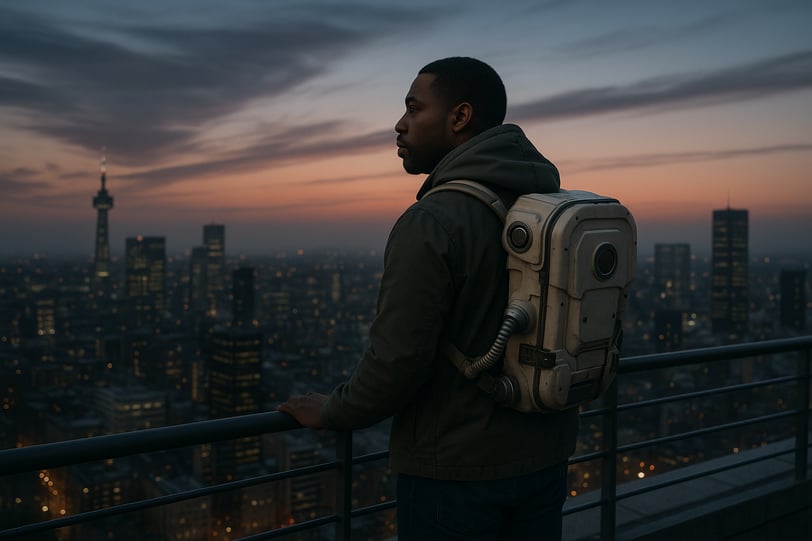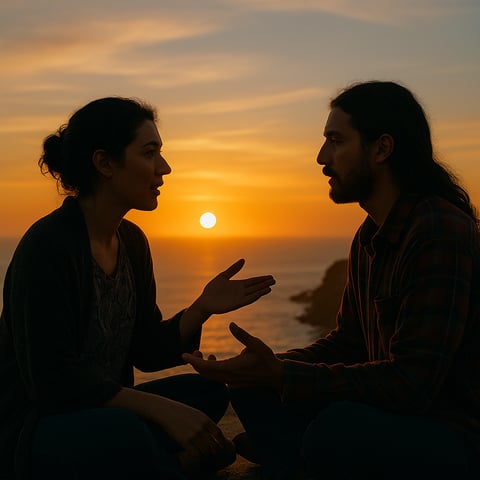The Rise of the Modern Cosmonaut
On a recent trip to Australia, I found myself. Not in a metaphysical sense, though trips like that are hardly uneventful, but I found myself, as in my identity. A unique individual and, doubtfully, for the last time.
SOCIAL


Inheriting Worlds
Just as the school year was ending, I booked a trip to Sydney with the intention of finding prospective venues abroad to host events and guest DJ. More importantly, I needed a recharge. I needed something fresh, something enlightening - a new worldview. This attempt at cultural diffusion was very intentional. I would be the participant observer, and everything I experienced over the next few days would be foreign..to me.
Cosmovision has entered the chat. And though it may sound like a wish from The Fairly OddParents, it’s actually not that far off. Cosmovision refers to the way a society or culture understands and relates to the universe, its origins, and our place
within it. It encompasses beliefs about the cosmos, nature, human beings, and their interconnectedness. If you need more time to wrap your head around that, it’s basically your worldview, a mental download of existence. And when that download gets corrupted (when the vision is lost or unrecognizable) the entire system crashes.
Like Mr. Crocker, obsessed with catching fairies, the biggest threat to a rich, rooted cosmovision is disconnection from it. Our ways of seeing are shaped by many different factors: what we’re taught, how we move, what we remember, and the ancestral footprints that we either walk in or try to outrun. Sure, we share culture through tribe and nationality, but where does that story really begin? Where does it end?
Place as a Portal
The idea of decolonization isn’t new. The blueprint is soaked in resistance; centuries of pushback in Mesoamerica and Africa met with colonial systems too stubborn to take no for an answer. The result? Cultural wreckage. Oceanic traditions dismantled like coral reefs, once vibrant, now ghosted by neglect and greed. But the land never forgets. From it, we inherit ways of knowing that survived despite it all.
Interconnectedness - through land, kinship, spirit, and time - has preserved this ancestral memory, rerouting us back to sovereignty. And when we experience the worldview of others, we’re not just traveling. We’re time-traveling. Every ritual, every shared meal, every unfamiliar rhythm is an olive branch away from the colonial creep, pulling us toward wholeness and clarity.
Building a Personal Cosmovision
How do you make a worldview that feels like yours and not just a remix of everything you’ve absorbed through algorithms and ambient culture? First, trace your lineage, not just the one on paper, but the one in spirit. Ask yourself what your grandparents believed in when no one was looking. What songs did your community hum to survive?
Then, build ritual around the land you occupy. Whether you’re in Hawai‘i or Australia, the land teaches you how to listen differently. The wind, the rain, the way the sun hits a city in the morning, all of it informs your perspective. Blend that with your own rhythm. Maybe it’s in music. Maybe it’s in healing. Maybe it’s in how you feed your people.
Cosmovision isn’t about going off-grid or going full monk mode. It’s about anchoring yourself in something real, remembered or passed down. And if you can’t remember it yet, start creating it. Design your own way of seeing that honors what came before you while carving out space for where you’re headed. Think of it as your personal myth with communal implications.


Seeing the World, Seeing Ourselves
We’re not just passengers anymore, we’re cartographers. Charting stories that were silenced. Mapping narratives that colonial systems tried to erase. When we peer into someone else’s cosmovision, we get a rare glimpse of what’s possible beyond the borders of Western logic and consumer sanity.
This is where global ancestors meet local lessons. Your cosmovision doesn’t have to be perfect. It just has to be lived. By walking the streets of Melbourne chilled to the bone, or sitting in a rain-washed window in Chatswood, I remembered what it meant to see myself again. Not just as a DJ or a student or a social worker, but as a living archive, decoding a thousand-year-old transmission in real-time.
And maybe that’s the whole point. We’re not just trying to “find ourselves.” We’re learning how to see. And in the reflection of others, in cultures that hold us differently, we finally start to recognize what was ours all along.
“When that vision is lost or unrecognizable, the entire system crashes.”
